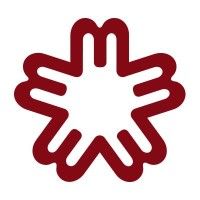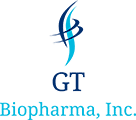Request Demo
Last update 08 May 2025
IL15R x PDL1
Last update 08 May 2025
Related
3
Drugs associated with IL15R x PDL1Target |
Mechanism IL15R agonists [+1] |
Active Org. |
Originator Org. |
Active Indication |
Inactive Indication |
Drug Highest PhasePhase 1 |
First Approval Ctry. / Loc.- |
First Approval Date20 Jan 1800 |
Target |
Mechanism CD16a modulators [+2] |
Active Org. |
Originator Org. |
Active Indication |
Inactive Indication- |
Drug Highest PhasePreclinical |
First Approval Ctry. / Loc.- |
First Approval Date20 Jan 1800 |
Target |
Mechanism IL15R agonists [+1] |
Active Org.- |
Originator Org. |
Active Indication- |
Inactive Indication |
Drug Highest PhaseDiscontinued |
First Approval Ctry. / Loc.- |
First Approval Date20 Jan 1800 |
2
Clinical Trials associated with IL15R x PDL1NCT04242147
A Phase 1, Open-label, Multiple-ascending Dose Study to Investigate the Safety, Pharmacokinetics, Pharmacodynamics, and Preliminary Efficacy of KD033 (SAR445710) in Subjects With Metastatic or Locally Advanced Solid Tumors
This is a Phase1, open-label, sequential dose-escalation and dose-expansion study of KD033 (SAR445710) in adult participants with advanced or metastatic solid tumors. The main purpose of this study is to test KD033 (SAR445710) at different dose levels to see if it is safe and well tolerated when given once every 2 weeks and when given weekly. Additional purposes of the study are to find out whether the study drug has anti-cancer effects and how the study drug is processed by the body.
Start Date06 Mar 2023 |
Sponsor / Collaborator |
NCT05702424
An Open-Label, Multicenter, Phase 1 Study of IGM-7354 in Adult Participants With Relapsed and/or Refractory Cancer
This study is a first-in-human (FIH), Phase 1, multicenter, open-label study to evaluate the safety, tolerability, and PK of IGM-7354 in participants with relapsed and/or refractory tumors. The study design consists of a dose-escalation stage and dose-expansion stage. Study participation will consist of a 28-day screening period, a treatment period, and a safety follow-up period 90-days after the last dose.
Start Date10 Jan 2023 |
Sponsor / Collaborator |
100 Clinical Results associated with IL15R x PDL1
Login to view more data
100 Translational Medicine associated with IL15R x PDL1
Login to view more data
0 Patents (Medical) associated with IL15R x PDL1
Login to view more data
2
Literatures (Medical) associated with IL15R x PDL130 Sep 2022·Journal of Leukocyte BiologyQ3 · MEDICINE
Fatty acids secreted from head and neck cancer induce M2-like Macrophages
Q3 · MEDICINE
Article
Author: Albakri, Marwah M ; Sieg, Scott F ; Tashkandi, Hammad N ; Huang, Stanley Ching-Cheng
01 Nov 2018·Annals of OncologyQ1 · MEDICINE
Immunological differences between primary and metastatic breast cancer
Q1 · MEDICINE
Article
Author: Frederick, C ; Hatzis, C ; Li, X ; Silber, A ; Yan, Q ; Pelekanou, V ; Harigopal, M ; Szekely, B ; Bossuyt, V ; Zhang, M ; Patwardhan, G A ; Rimm, D L ; Pusztai, L ; Bianchini, G ; Park, T ; Wali, V B
1
News (Medical) associated with IL15R x PDL118 Jan 2022
ImmunityBio, Inc. (NASDAQ: IBRX), a clinical-stage immunotherapy company, today announced interim results (N=63) in its metastatic pancreatic cancer trial (QUILT 88) showing that the overall survival rate for patients doubled compared to historical survival rate of three months after two prior lines of therapy (Manax ASCO GI 2019). The data of the Phase 2 trial studying a combination immunotherapy (Nant Cancer Vaccine) also show treatment-related serious adverse events were uncommon (8%) and no treatment-related deaths were reported. Based on these findings, ImmunityBio plans to meet with the FDA in 2022 to discuss the path for the approval of combination therapies for pancreatic cancer.
The results were presented today at the American Society of Clinical Oncology Gastrointestinal conference, which is being held virtually.
Pancreatic cancer is the fourth leading cause of cancer-related death in the United States and has one of the highest mortality rates of all major cancers, taking nearly 50,000 lives in the U.S. every year. Surgery and subsequent adjuvant chemotherapy are the preferred treatment options for pancreatic cancer today, but the five-year survival rate for late-stage cases is just 3%. For the majority of patients who present with more advanced disease, treatment typically consists of chemotherapy alone or supportive care for metastatic patients, and chemotherapy with or without radiation for those with locally advanced disease, leaving patients seeking new options.
“There are thousands of patients in advanced stages of this disease and there are few, if any, treatment options for them,” said Patrick Soon-Shiong, M.D., Founder and Global Chief Scientific and Medical Officer of ImmunityBio, Inc. “Based on this encouraging data from our QUILT 88 trial, we are hopeful that our Nant Cancer Vaccine can potentially address this unmet need. What’s more, we designed this therapeutic candidate to be administered in an outpatient setting making it more accessible to future patients than traditional immune checkpoint inhibitors.”
To date, 27% of third-line or greater patients (17/63) remain on study. The median overall survival in this highly advanced group of patients, who failed two to six prior lines of treatment, is 5.8 months (95% CI: 3.9, 6.9 months) exceeding the approximately three-month historical median overall survival. Of the 63 patients, 30 (48%) had progressed after two prior lines of therapy. Median overall survival in this group was 6.3 months (95% CI: 5.0, 9.8 months), more than doubling the historical overall survival. On the strength of this early data and significant unmet medical need, the company has expanded enrollment in the third-line or greater cohort.
QUILT 88 is an open-label study to evaluate the safety and efficacy of the Nant Cancer Vaccine, comprising ImmunityBio’s IL-15 receptor agonist Anktiva (N-803), its off-the-shelf targeted natural killer cells (PD-L1 t-haNK), and aldoxorubicin, an albumin-modulated agent, plus low-dose chemotherapy. This combination Nant Cancer Vaccine is randomized against standard-of-care high-dose chemotherapy for first- and second-line treatment; the third-line or greater cohort, with an original target of 50 patients, is a single arm with the primary endpoint of overall survival.
QUILT-88 Study Details
This Phase 2, randomized, three-cohort, open-label study will evaluate the comparative efficacy and overall safety of standard-of-care chemotherapy versus low-dose chemotherapy in combination with PD-L1 t-haNK, Anktiva (N-803), and aldoxorubicin in subjects with locally advanced or metastatic pancreatic cancer (NCT04390399). Each treatment setting, as well as each first- and second-line or later maintenance treatment, will be evaluated independently as Cohorts A, B, and C, respectively, with Cohorts A and B having independent experimental and control arms. The study is expected to enroll 328 subjects across all three cohorts giving effect to the expanded enrollment of Cohort C (63 of 80 participants are currently enrolled in Cohort C, third-line or greater). The primary objective of Cohorts A and B is progression-free survival (PFS) per RECIST V1.1, and the objective of Cohort C is overall survival (OS). Secondary objectives include initial safety and additional efficacy measures, including overall response rate (ORR), complete response (CR) rate, durability of response (DoR), disease control rate (DCR), and overall survival (OS).
Currently, three trial sites have been activated: Hoag Memorial Hospital Presbyterian in Orange County, Calif., The Chan Soon-Shiong Institute for Medicine in Los Angeles County, Calif., and Avera McKennan Hospital and University Health Center in Sioux Falls, South Dakota, which serves patients in the tri-state area (Iowa, Nebraska and South Dakota).
About ImmunityBio
ImmunityBio is a leading late-clinical-stage immunotherapy company developing next-generation therapies that drive immunogenic mechanisms for defeating cancers and infectious diseases. The company’s broad immunotherapy and cell therapy platforms—including Antibody cytokine fusion proteins, synthetic immunomodulators, vaccine technologies (hAd5 viral vector, mRNA, recombinant protein, and adjuvant), and genetically-modified, off-the-shelf natural killer cells (autologous and allogenic cytokine-enhanced memory NK cells)—activate both the innate (natural killer cell and macrophage) and adaptive (T cell) immune systems to create long-term “immunological memory.”
ImmunityBio’s clinical pipeline consists of 21 clinical trials—13 of which are in Phase II or III development—across 12 indications in solid and liquid cancers (including bladder, pancreatic, and lung cancers) and infectious diseases (including SARS-CoV-2 and HIV). Anktiva™, ImmunityBio’s lead cytokine infusion protein, is a novel interleukin-15 (IL-15) superagonist complex and has received Breakthrough Therapy and Fast Track Designations from the U.S. Food and Drug Administration (FDA) for BCG-unresponsive CIS non-muscle invasive bladder cancer (NMIBC).
The company has established GMP manufacturing capacity at scale with cutting-edge cell manufacturing expertise and ready-to-scale facilities, as well as extensive and seasoned R&D, clinical trial, and regulatory operations, and development teams.
VaccineAntibodyBreakthrough TherapyFinancial StatementCell Therapy
Analysis
Perform a panoramic analysis of this field.
login
or

AI Agents Built for Biopharma Breakthroughs
Accelerate discovery. Empower decisions. Transform outcomes.
Get started for free today!
Accelerate Strategic R&D decision making with Synapse, PatSnap’s AI-powered Connected Innovation Intelligence Platform Built for Life Sciences Professionals.
Start your data trial now!
Synapse data is also accessible to external entities via APIs or data packages. Empower better decisions with the latest in pharmaceutical intelligence.
Bio
Bio Sequences Search & Analysis
Sign up for free
Chemical
Chemical Structures Search & Analysis
Sign up for free


